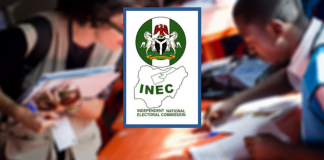🌿 Ruzu Non-Alcoholic Herbal Bitters
Ruzu Non-Alcoholic Herbal Bitters is a natural health supplement specially formulated to:
- ✅ Promote general wellness
- ✅ Detoxify the body
- ✅ Support the treatment of various ailments
Made from a powerful blend of 100% organic and medicinal herbs, Ruzu is completely alcohol-free, making it ideal for:
- 👪 All age groups
- 🌱 Health-conscious individuals
- 🌿 Anyone seeking non-alcoholic herbal remedies
Whether you're looking to boost your vitality, cleanse your system, or support healing the natural way, Ruzu Bitters offers a trusted herbal solution.
According to the Federal Inland Revenue Service (FIRS), debt is a reasonable and sustainable component of any national budget, and the agency has justified the federal government’s borrowing policy.
Zacch Adedeji, the chairman of the FIRS, reportedly said this to reporters on Tuesday at the Presidential Villa in Abuja during the Presidential Communications Team’s Meet-the-Press series.
Critiques of the government’s debt profile were ignored by Adedeji, who emphasized that no country in the world finances its budget entirely through revenue.
It’s not an issue to borrow. It is a component of every healthy country’s ecosystem. Every nation in the globe depends on its own income to live.
Banks use the interest they receive from government borrowing to pay salaries, and taxes are taken out of their earnings. It’s a cycle that keeps things going,” he said.
Every budget is composed of three main parts: revenue, expenditures, and loans. The tax director went on to say that there shouldn’t be any controversy as long as government borrowing keeps within the limits set by the National Assembly.
According to the head of FIRS, borrowing money to finance transportation, energy, and road projects is a “sustainable approach” since it eventually generates tax income.
“Borrowing to finance infrastructure, such as roads, results in future tax income from the companies and people who use those projects. Adedeji stated that it is a sustainable strategy.
Adedeji said that in an attempt to increase Nigeria’s income base and lessen its excessive reliance on borrowing, the Personal Income Tax (PIT) and Company Income Tax (CIT) reforms would go into force in January 2026.
“The administration of President Bola Tinubu also terminated the Ways and Means financing through the Central Bank, turning it into a structured federal loan that is currently being serviced with principal and interest payments,” he continued.
He claimed this has relieved pressure on the naira and helped stabilize the economy.
Adedeji emphasized the progress in collections by revealing that government revenue increased by 411 percent to ₦3.64 trillion in September 2025 from ₦711 billion in May 2023.
According to a PowerPoint that was distributed before the meeting, the increase was mostly caused by increased non-oil revenue, which reflected the shift away from revenue sources that were dependent on oil.
















